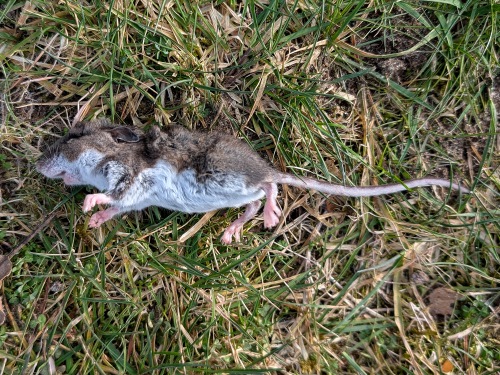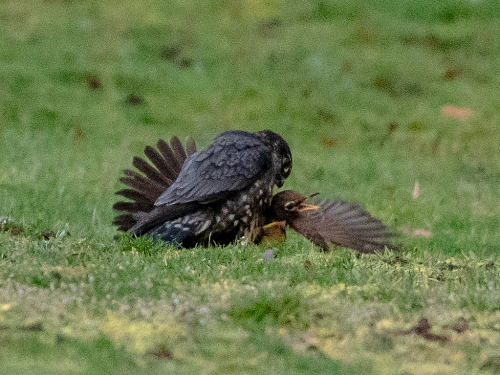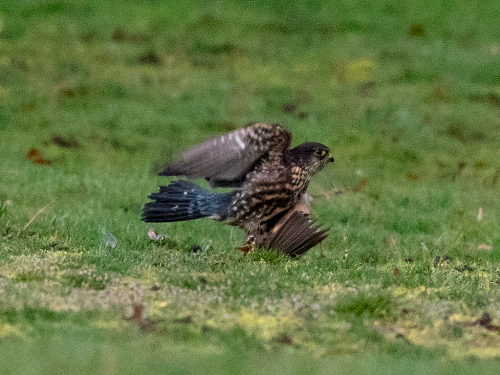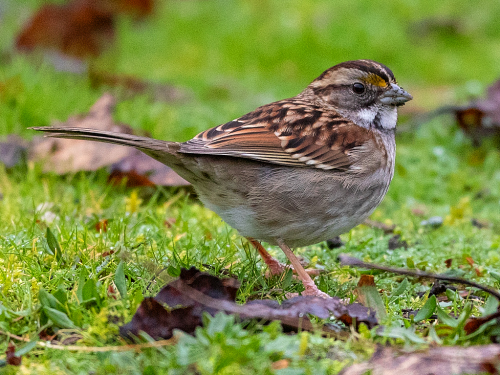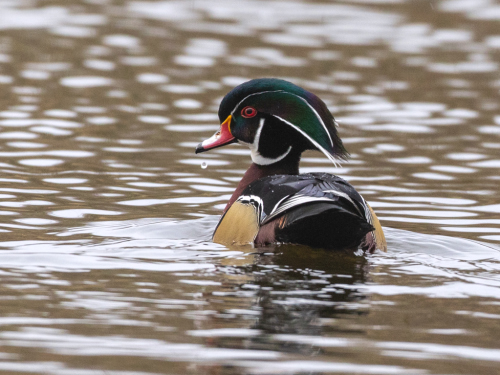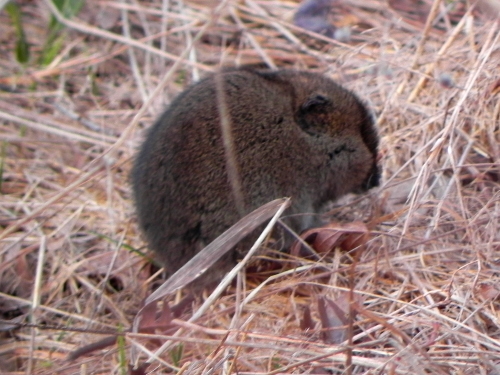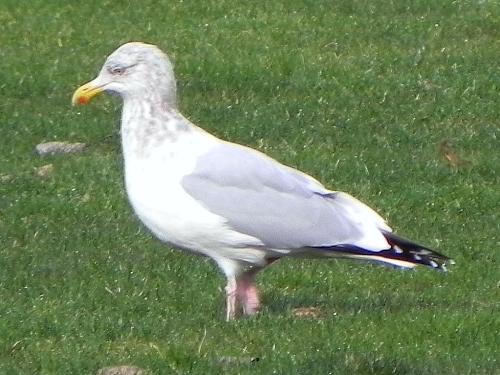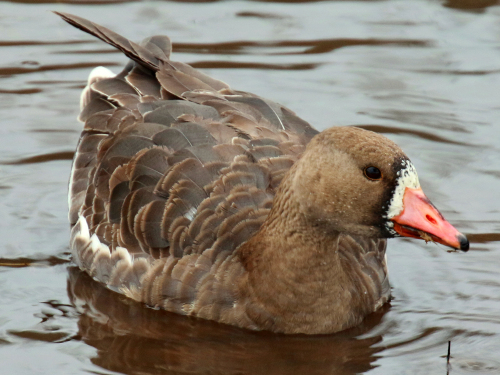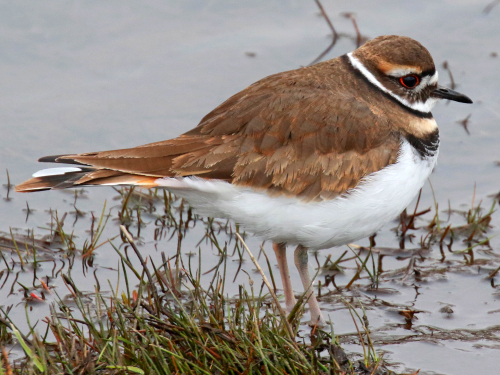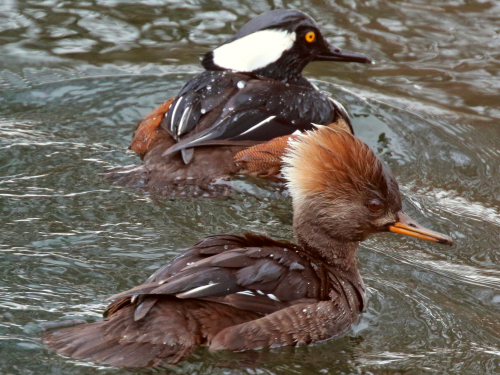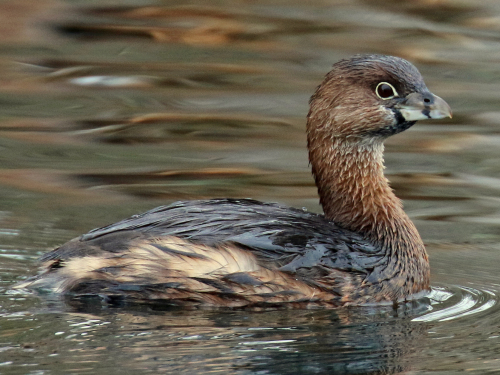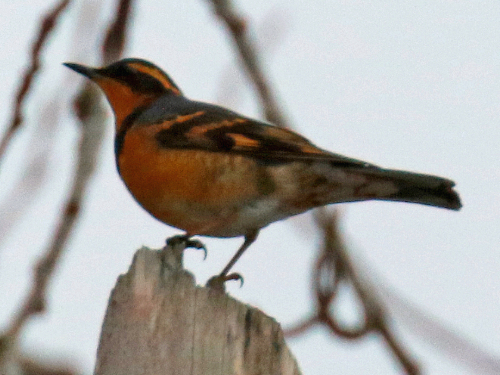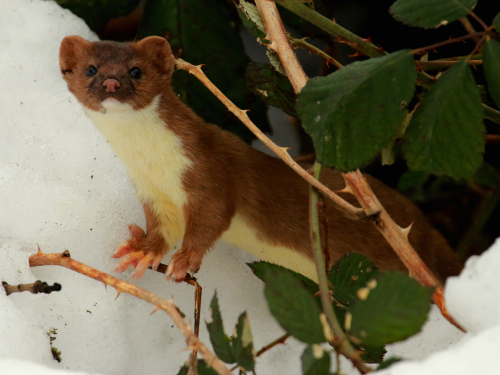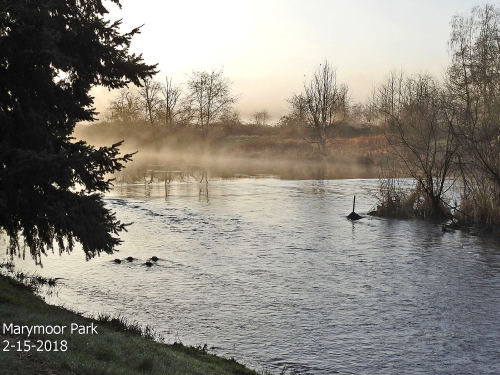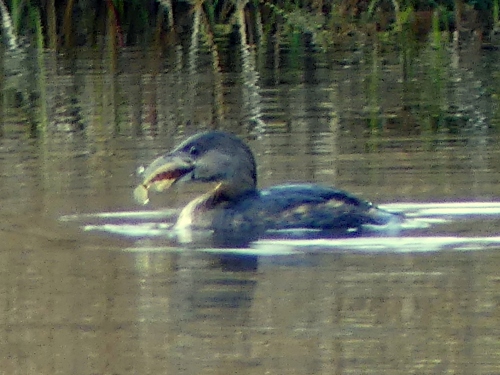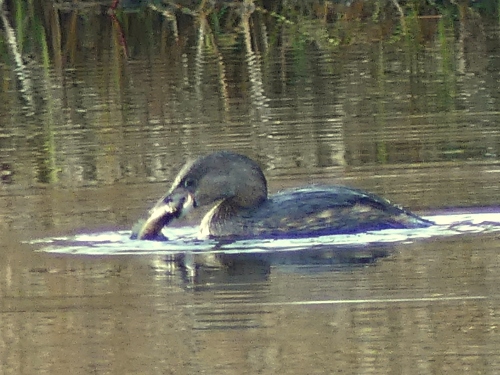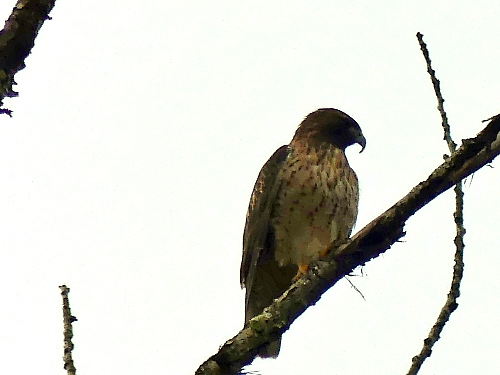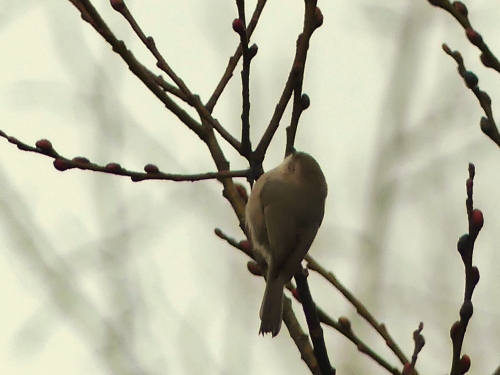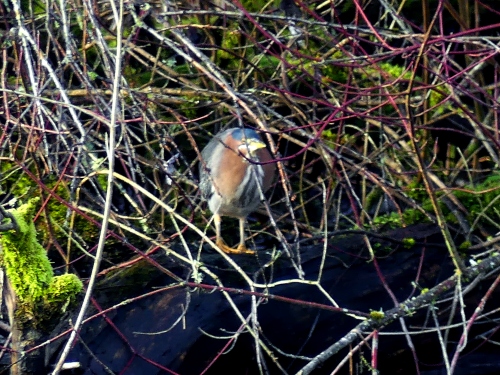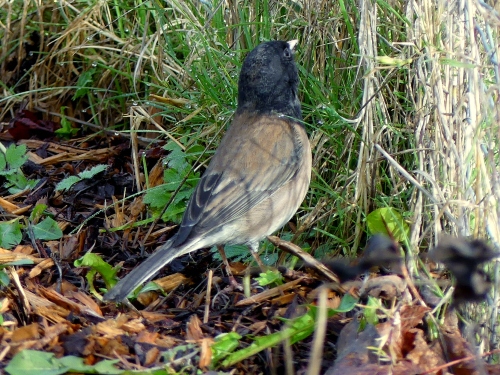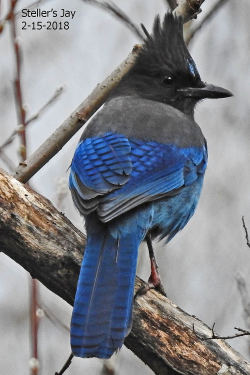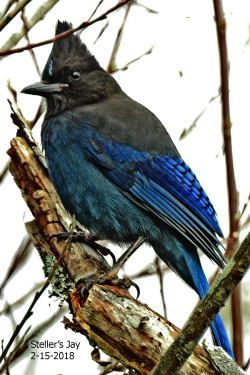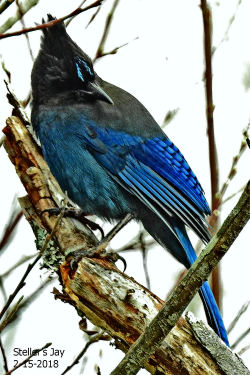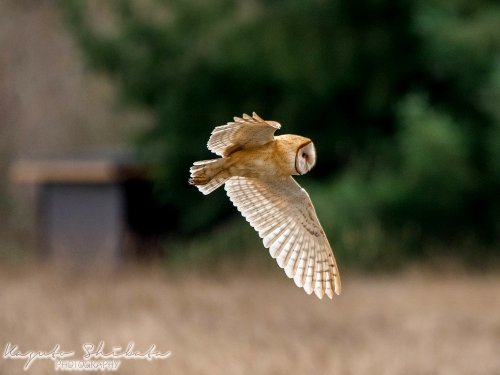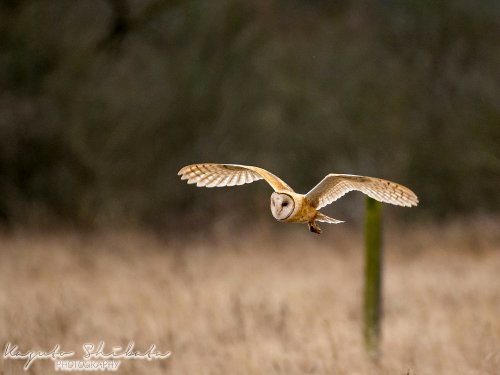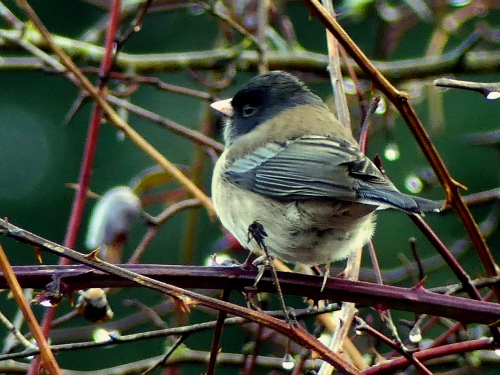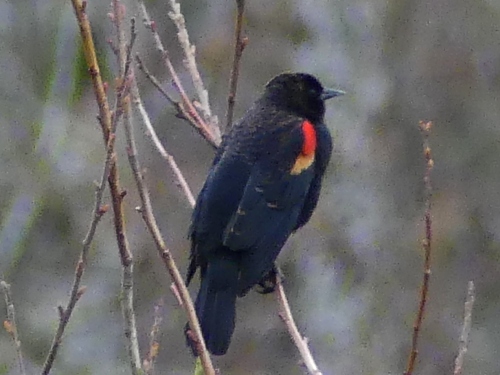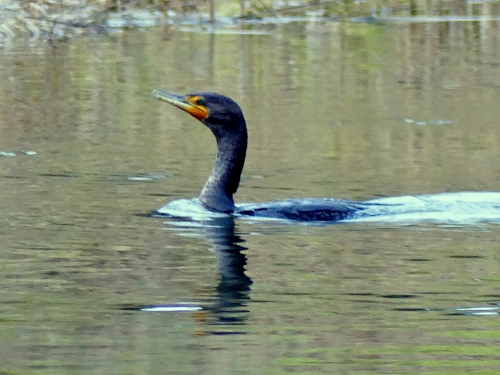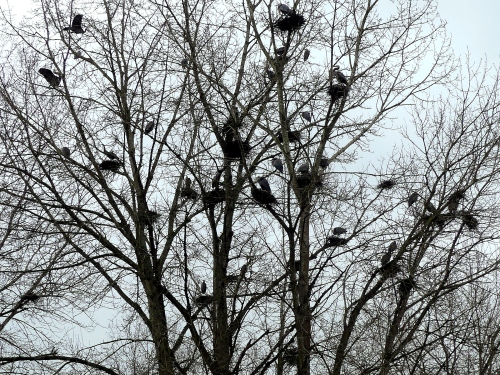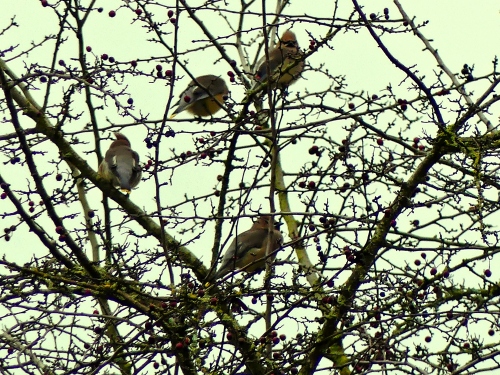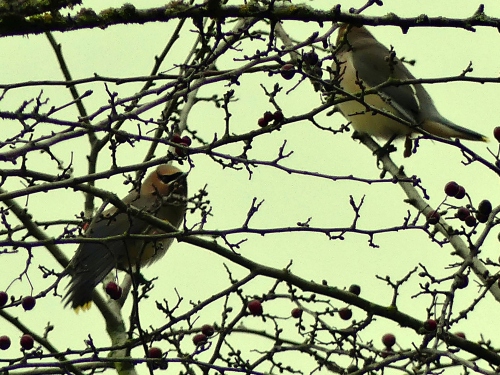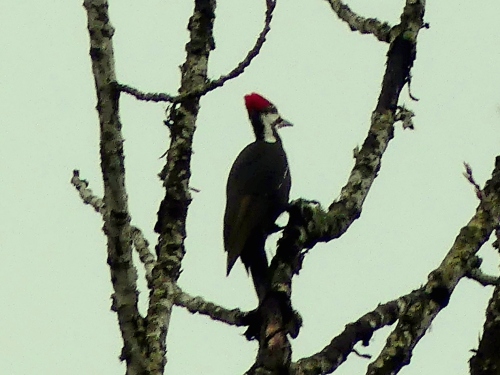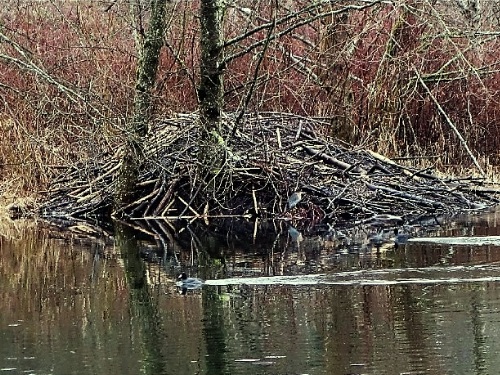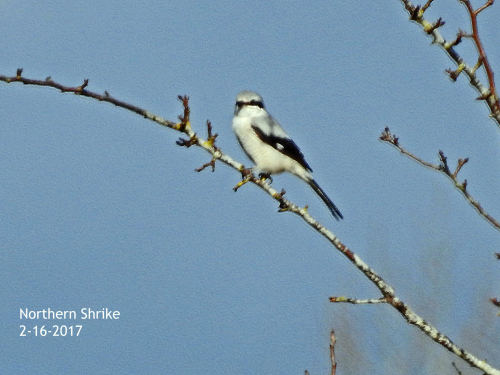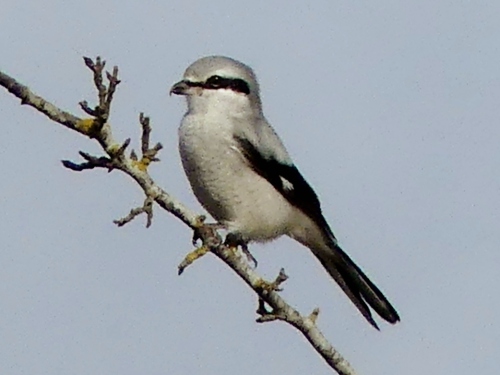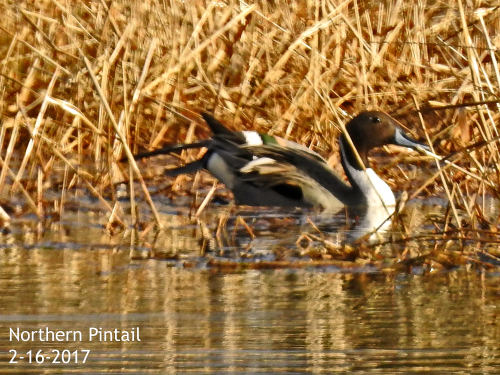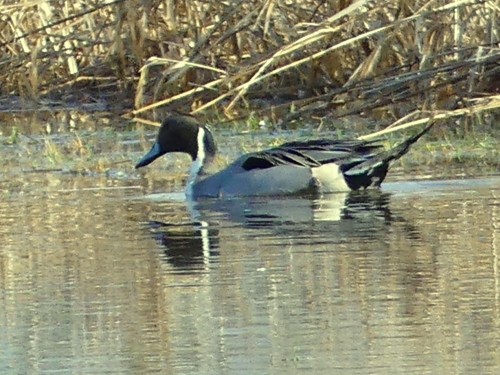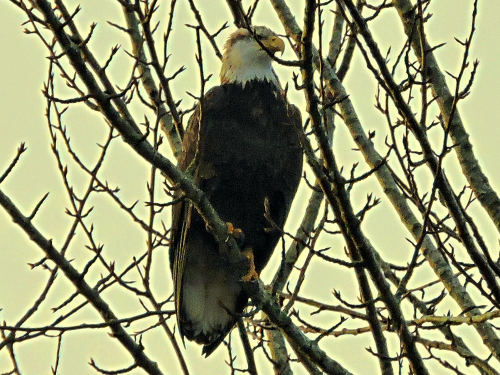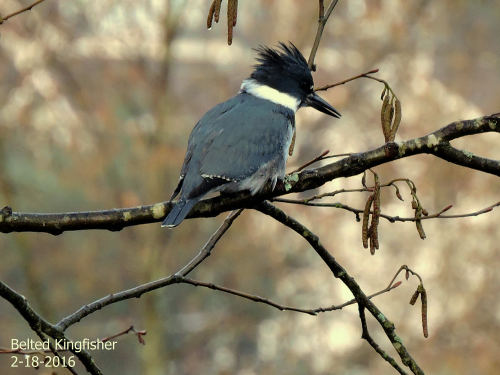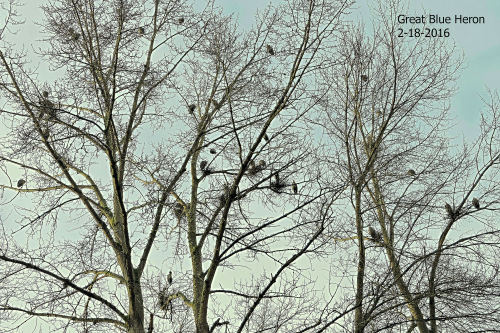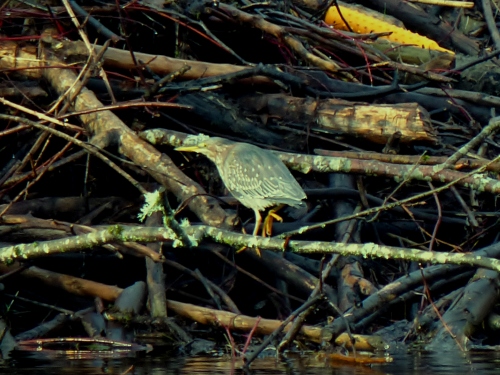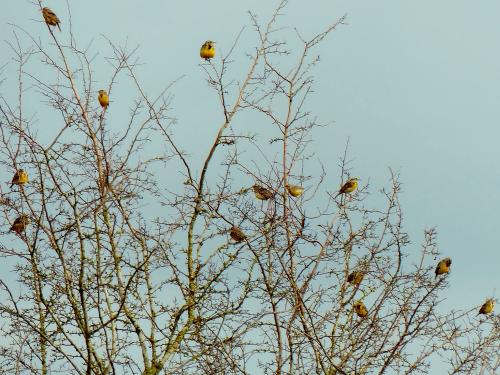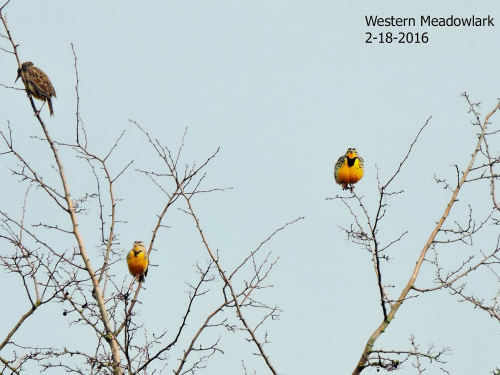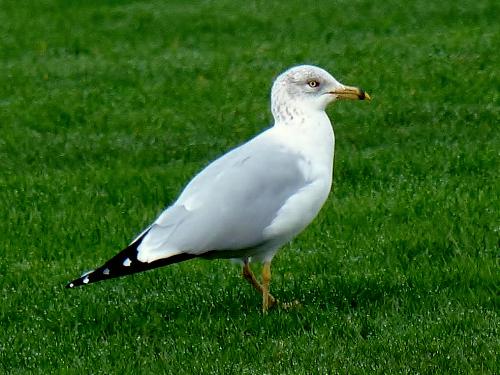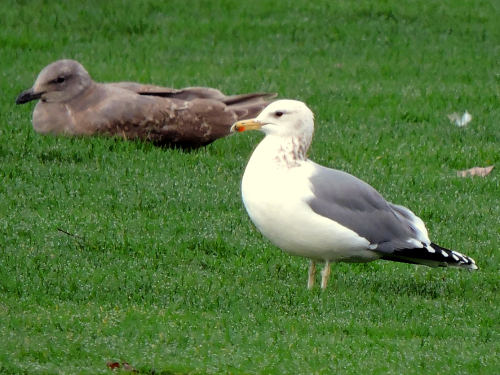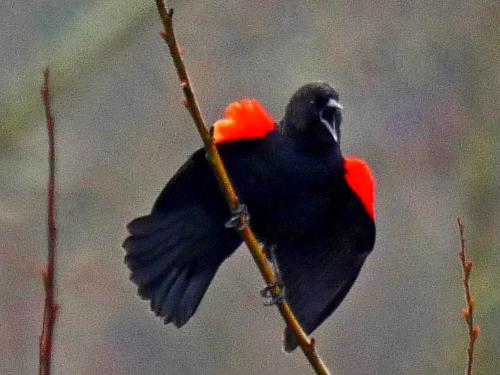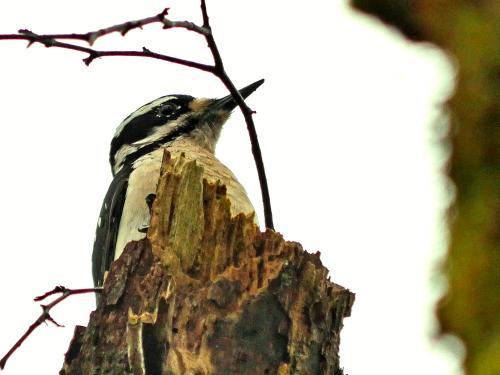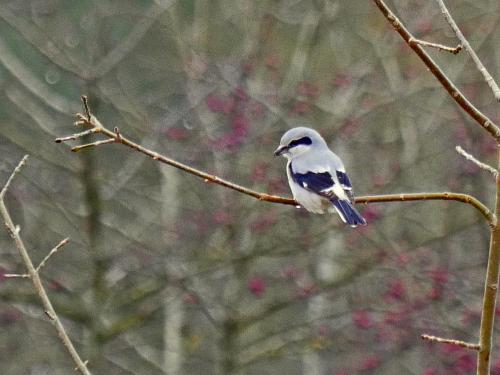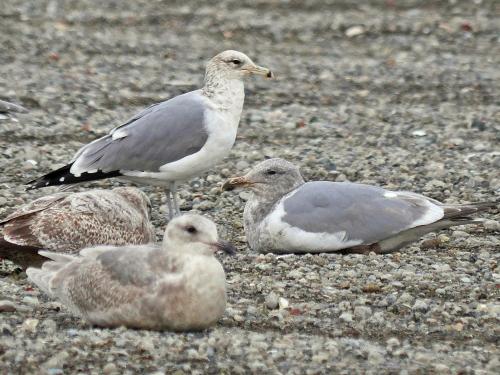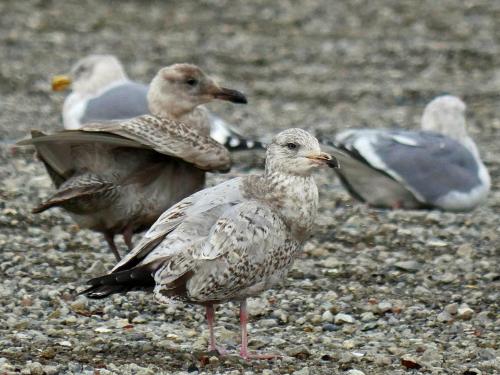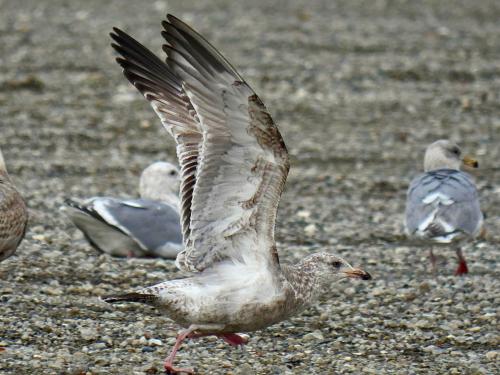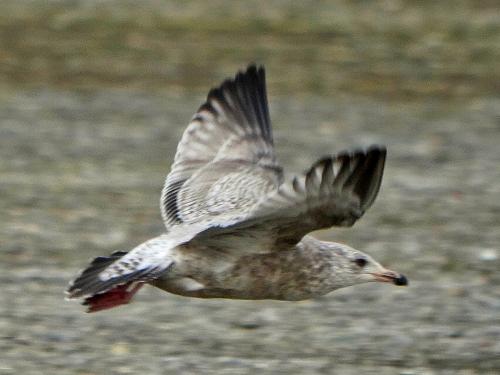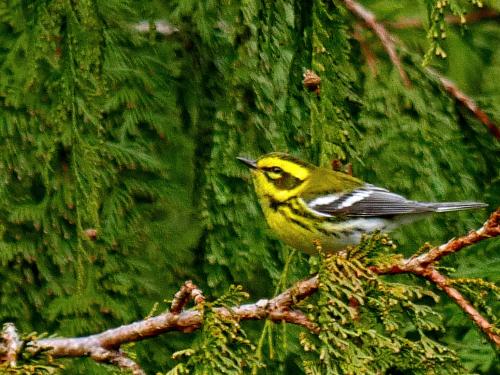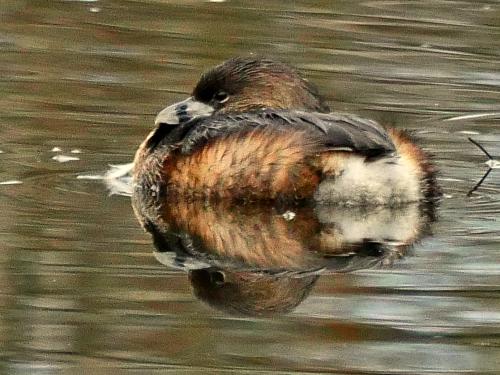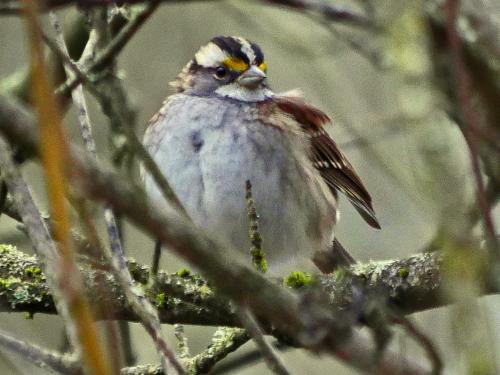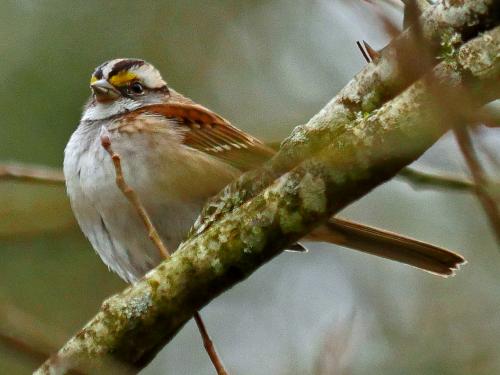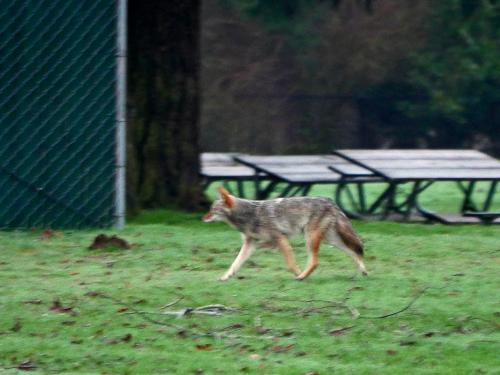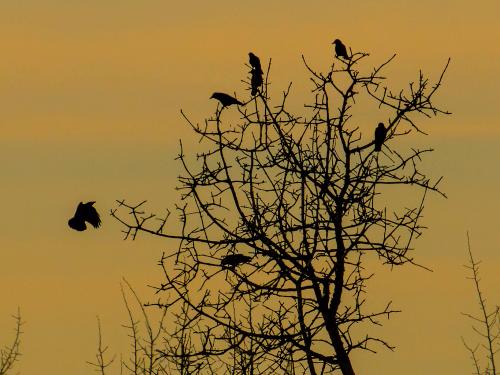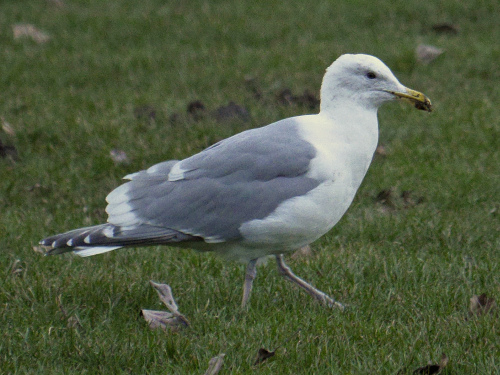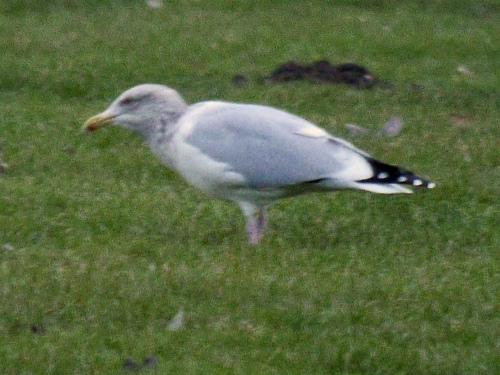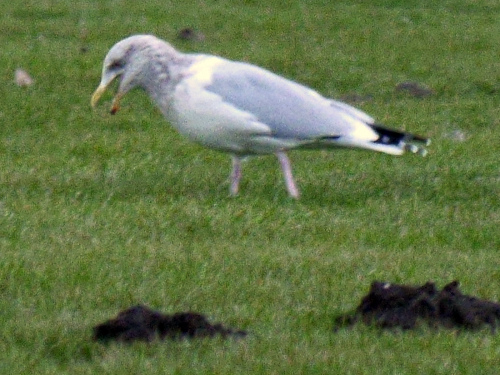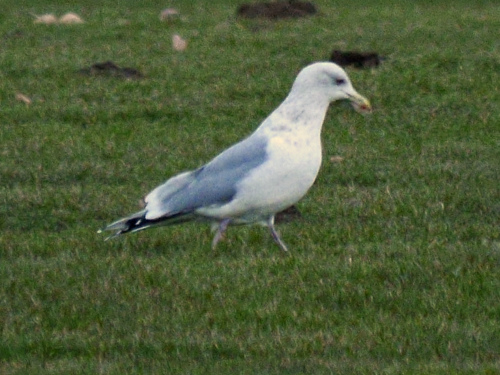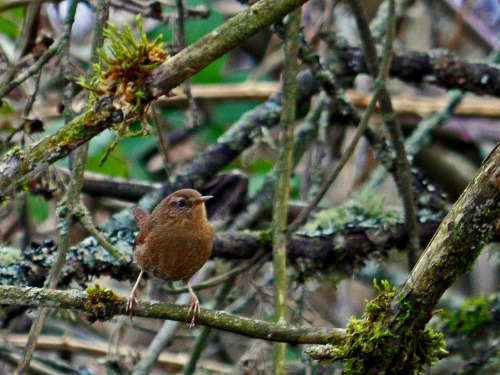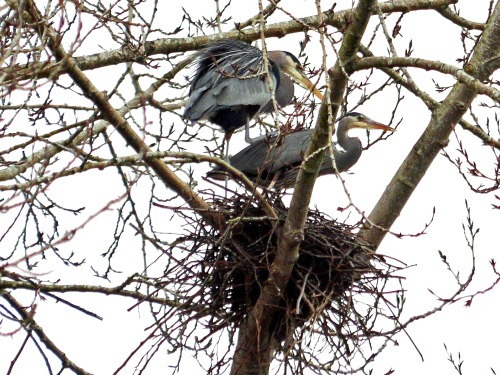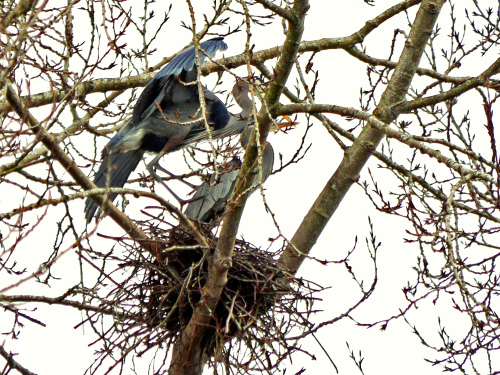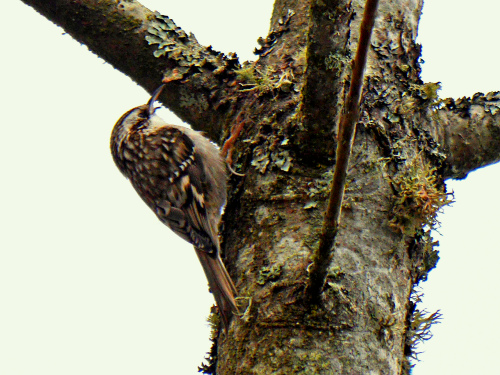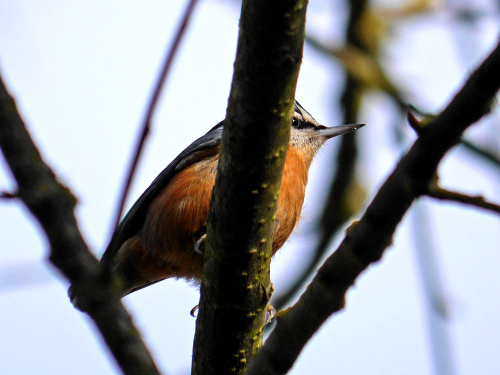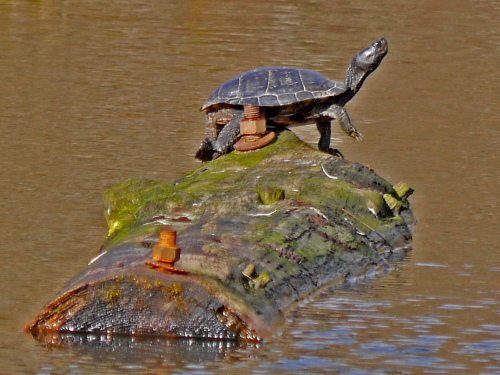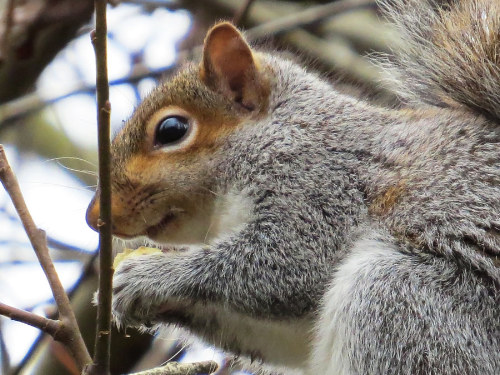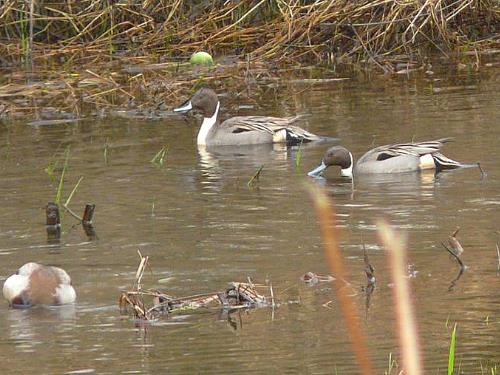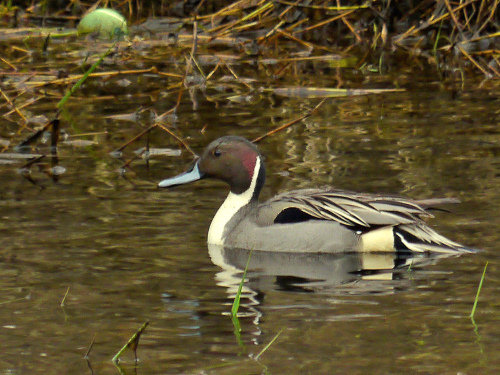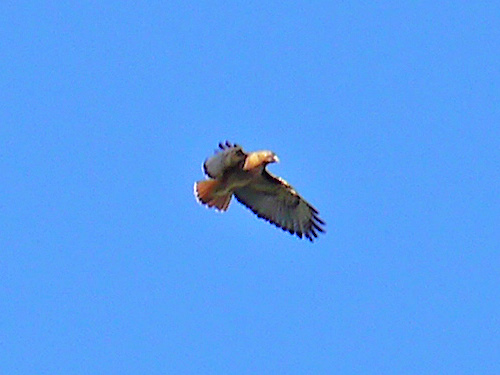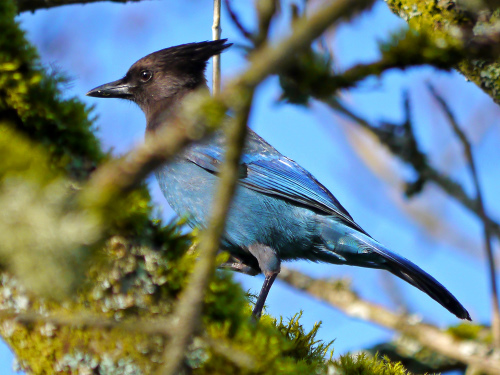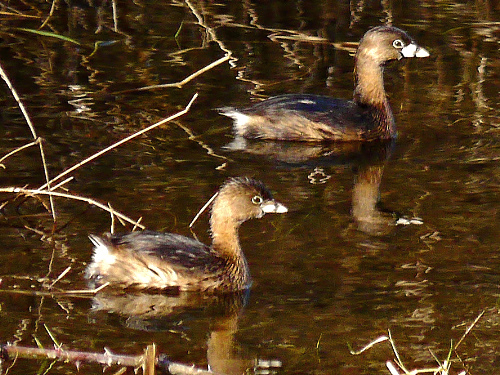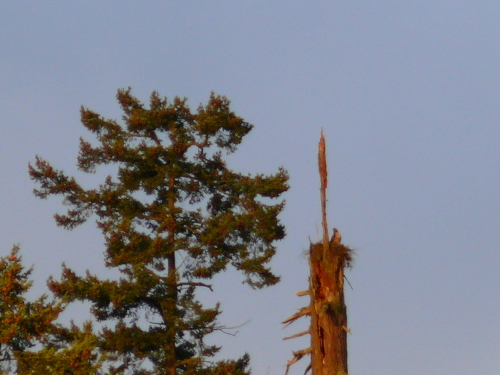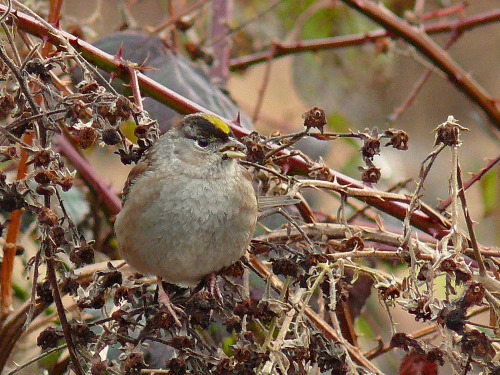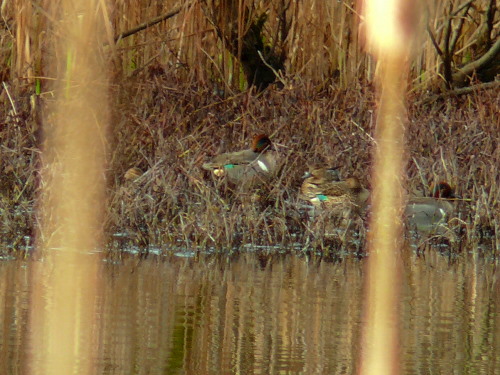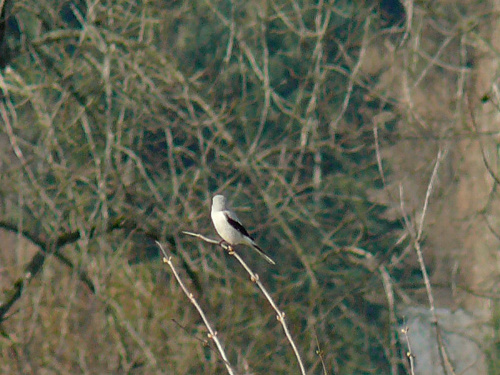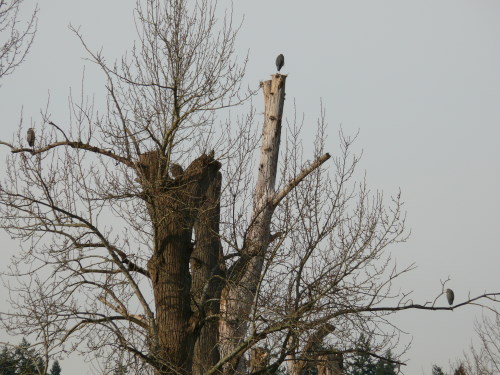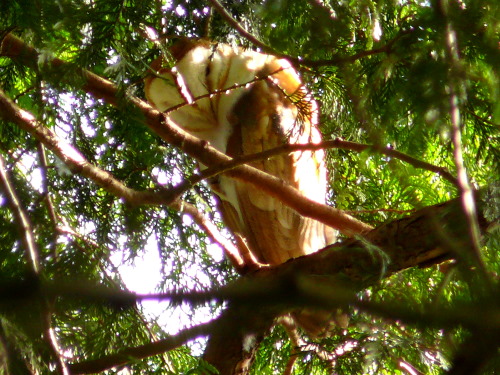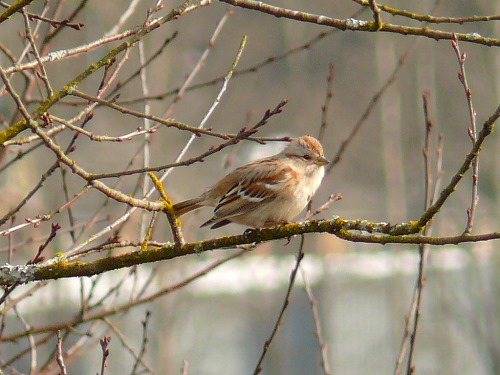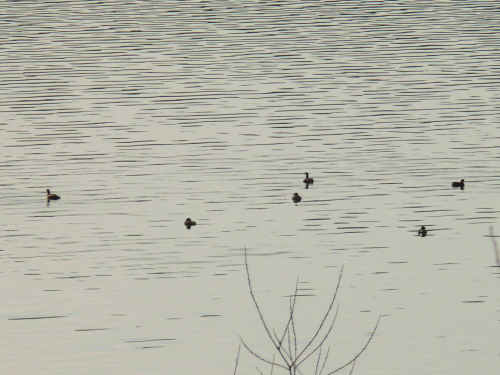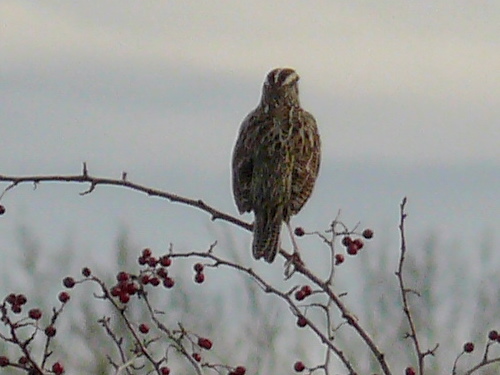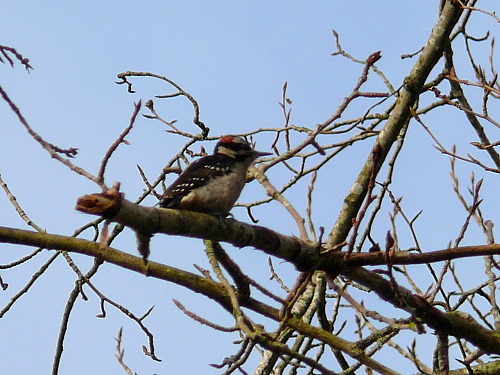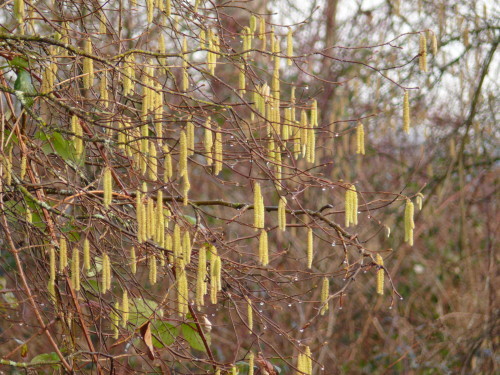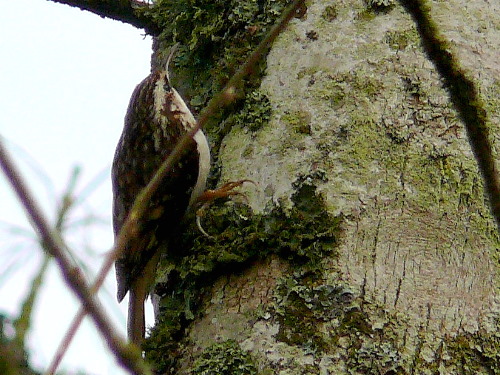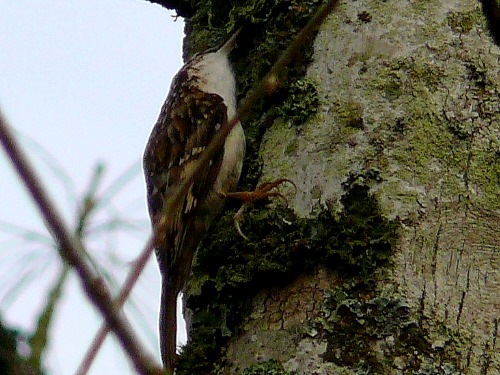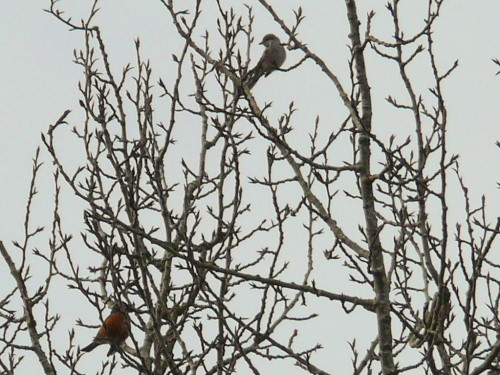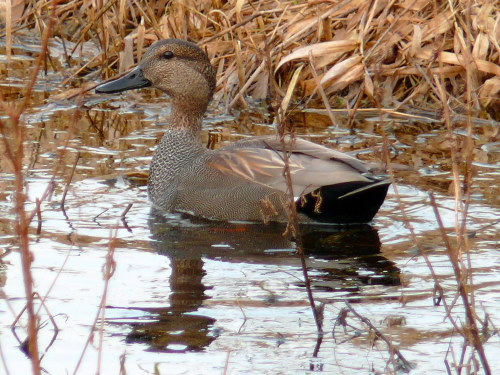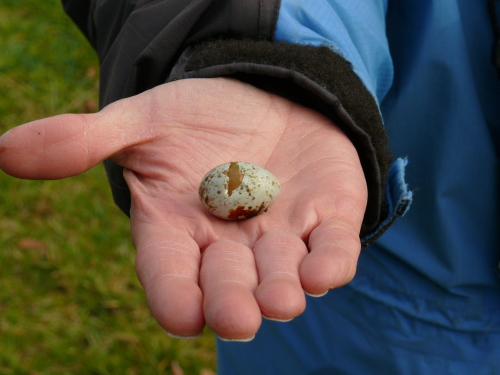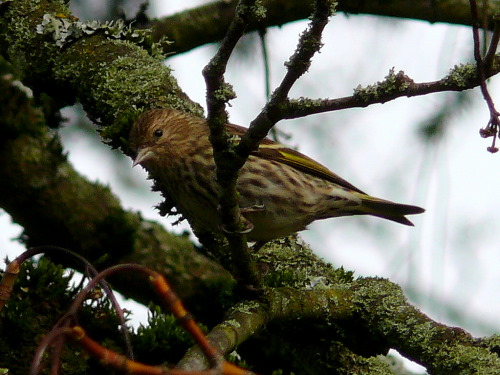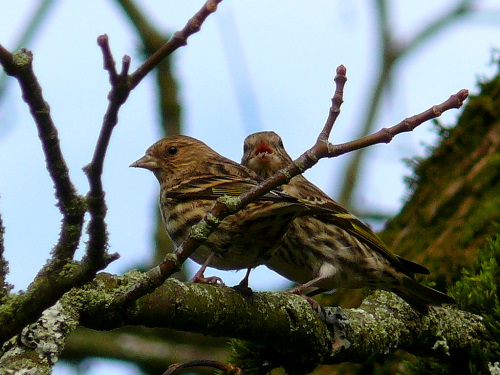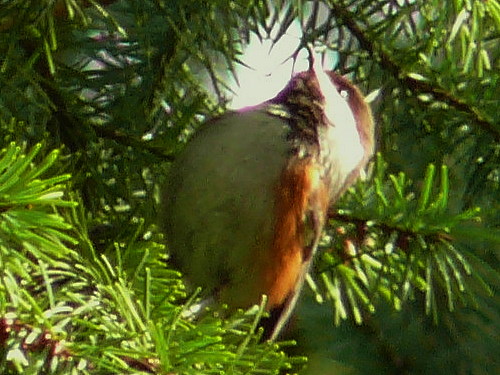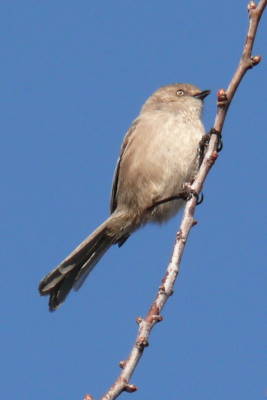Prev |
Bird Sightings Week 7
|
Next |
Rarities for Week 7:
| ...Barrow's Goldeneye | 15-Feb-07 | First seen 08-Feb-07 |
| Glaucous Gull | 15-Feb-07 | |
| Iceland Gull | 18-Feb-04 | Thayer's subspecies |
| ...Iceland Gull | 18-Feb-16 | Thayer's subspecies. First seen 11-Feb-16 |
|
...Long-eared Owl |
13-Feb-20 | Probably same bird as on 20-Jan-20 |
| ...Redpoll | 15-Feb-18 | Continuing from 04-Jan-18 |
| Townsend's vole | 15-Feb-18 | Continuing from 04-Jan-18 |
Report for February 13, 2025 Birding at Marymoor
| Strange Marymoor walk today. It was really cold and dry (29 degrees to start, but felt colder), sometimes breezy, never really sunny, and mostly birdless. We also had no access to much of the slough, as the entire slough trail through the Dog Area was closed for maintenance. It was also just Matt and me, as many of the usuals are birding far away in warmer climes. Despite the difficult slough access, we managed to do okay with waterbirds. It was all of the rest of the avian world that was almost entirely absent until around 10 a.m., at which point we started to find some things. The Rowing Club turned out to be, by far, the best location of the day. Highlights:
Misses today included Ring-necked Duck, Virginia Rail, American Coot, Short-billed Gull, Ring-billed Gull, European Starling (first miss ever for Week Seven), and Purple Finch. Picking up five species at the Rowing Club definitely helped our day total, which by the end hit a semi-respectable 51 species (including scaup sp.) With two FOY birds, we're up to 74 species for 2025. = Michael Hobbs |
|
|
|
Deceased Deer Mouse, bottom of the East Meadow. Photo by Michael Hobbs |
Report for February 15, 2024 Birding at Marymoor
|
The weather wasn't very pleasant this morning; yesterday's weather would have been much better. Cold, breezy, biting, dark, and sometimes wet. But it was quite a good day of birding. Go figure.
Highlights:
Misses today included Hooded Merganser, Belted Kingfisher, Downy Woodpecker, and House Finch.
For the day, a year's best 56 species. For the year, we're at 72 species.
= Michael Hobbs
|
|
|
|
|
|
|
|
Report for February 16, 2023 Birding at Marymoor
| Another day of overly-good weather. It was quickly above freezing after sunrise, and there was just a high, thin, wispy overcast keeping us from having shadows. No wind, no precip. Fairly birdy at times. Lake and river levels remain unseasonably low; we expected to see more snipe in the exposed flats below the weir, but we had only about three. Highlights:
We also had a vole in the East Meadow; my current belief is that it was a Townsend's Vole but my ability to identify voles is very sketchy. The tail seemed all-brown rather than bicolored, which favors Townsend's over Long-tailed. I think those would be the two most likely voles at Marymoor, but what do I know? Singing birds today included ANNA'S HUMMINGBIRD, BLACK-CAPPED CHICKADEE, PACIFIC WREN, BEWICK'S WREN, RUBY-CROWNED KINGLET, AMERICAN ROBIN, HOUSE FINCH, PURPLE FINCH, GOLDEN-CROWNED SPARROW, SONG SPARROW, DARK-EYED JUNCO, and RED-WINGED BLACKBIRD. An ANNA'S HUMMINGBIRD was doing display flights and a NORTHERN FLICKER was drumming. Feels like spring for many of our birds. Misses today included just SHORT-BILLED GULL, FOX SPARROW and WHITE-CROWNED SPARROW. For the day, 55 species plus Lonesome George II, the Ring-necked Pheasant. = Michael Hobbs
|
|
|
|
|
Report for February 17, 2022 Birding at Marymoor
|
We had a pretty nice morning today. No sunshine, but otherwise the weather was great. Definitely still winter birding, but spring feels close.
Highlights:
“Singing” was the story of the day: Ring-necked Pheasant, Anna’s Hummingbird, Steller’s Jay, Black-capped Chickadee, Brown Creeper, Pacific Wren, Marsh Wren, Bewicks’s Wren, Varied Thrush, American Robin, House Finch, Fox Sparrow, Dark-eyed Junco, Golden-crowned Sparrow, Song Sparrow, Western Meadowlark, and Red-winged Blackbird. Some of the songs were early-season and whispery (especially the Steller’s Jay).
Misses today included Virginia Rail, Northern Shrike, and Purple Finch.
For the day, 58 species.
= Michael Hobbs
|
Report for February 17, 2021 Birding at Marymoor
|
We were under cloudy skies today, but the rain held off until we were about done for the day, which was excellent. Not too terribly birdy, but pretty good anyway. This is February, after all... The snow is almost completely gone from the park, and we did not see any notable damage.
Highlights:
A late scan of the lake turned up one HORNED GREBE.
As I was driving home, I saw a flock of geese looking like they would land in the NW corner of the park, so I made a quick right turn back into the park. Sure enough, I found a flock of CACKLING GEESE on the grass softball fields west of the tennis courts. Among them was an adult GREATER WHITE-FRONTED GOOSE – (FOY). While I was viewing them, I heard a call, turned around, and found six AMERICAN GOLDFINCH in a tree in the parking lot. So that quick stop yielded 3 new birds for the day
Misses today included Mew Gull, Bushtit, and White-crowned Sparrow.
For the day, 59 species, with two new for 2021.
= Michael Hobbs
|
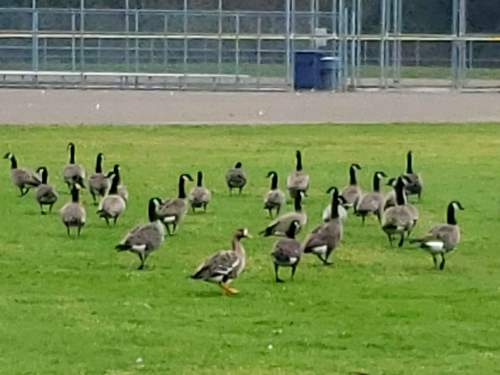 Adult Greater White-fronted Goose, with Cackling Geese.
Photo by Michael Hobbs |
Report for February 13, 2020 Birding at Marymoor
|
A nice morning, mostly not too cold, mostly not raining, and mostly not too windy. There was a brief squall that did combine cold, rain, and wind, just to keep us believing it’s still not really spring.
The record flooding continues. I’m failing to completely correlate official lake level data with what we’ve manually read from the lake gauge just above the weir, but it appears the lake high water occurred over the weekend. It rose at least one, and maybe as much as two feet above our Thursday survey, over the weekend. The lake level has dropped back some, but flooding in the park is much more extensive than last Thursday. This is definitely the biggest flood since 2007, and may have exceeded the January 1997 flood.
What this meant for us is that we couldn’t get to much of the area we normally survey. The Off-leash Dog Area is split into two pieces; the slough trail is closed just south of Dog Central, and from the east side, you can’t go south of the East Meadow. The boardwalk and trails to it are entirely flooded. The entire middle of the dog park is a large pond, and many other portions of the park are underwater too. Made for a very different walk.
Highlights:
We only had 8 species of waterfowl, with only Bufflehead and Common Goldeneye representing divers. I wonder if turbidity in the lake and river have driven most diving ducks elsewhere? Our only American Coots were in the interior “lake”.
For the 3rd week already this year, we had ZERO FINCHES.
Misses for the day included Ring-necked Duck, Hooded Merganser, Common Merganser, Bushtit, Marsh Wren, House Finch, Purple Finch, and Lincoln’s Sparrow
For the day 51 species.
= Michael
|
Report for February 14, 2019 Birding at Marymoor
| Marymoor was closed to the public on Tuesday, but by this morning they’d gotten the main roads clear, and a couple of the parking lots. We didn’t come close to filling Lot C this morning despite the lot being only half cleared. We were just 4, and then 3, and by 9:00am it was just me and Jordan. Snow everywhere, of course, and it froze last night, though it was 33 degrees when we started. Lots of branches and limbs down, and all the blackberries FLATTENED. The snow had a crust and a crunch to it, making walking difficult in places.
Highlights:
Missing birds today included Virginia Rail, Mew Gull, Ring-billed Gull, Bushtit, and Lincoln’s Sparrow. For the day, 59 species. Nothing new for 2019, though repeats of birds from my walk last Sunday got several species on the Thursday Survey list. William Fletcher got a photo of an AMERICAN PIPIT below the weir on Sunday afternoon however! == Michael Hobbs |
|
|
|
|
|
|
|
Report for February 15, 2018 Birding at Marymoor
| A very nice morning today. Well pre-dawn, Mason and I scoped Saturn to the southeast; it’s really showing its rings right now. And then we scoped Jupiter, fairly high to the south, and the four visible moons were lined up to the left. Very nice way to start the morning. The day continued well, with bits of sun, and temps rising into the 40’s. And it was birdy, with much singing.
Highlights:
Singing birds included Anna’s Hummingbird (display flights too), Northern Flicker (drumming too), Black-capped Chickadee, Pacific Wren, Marsh Wren, Bewick’s Wren, Ruby-crowned Kinglet, American Robin, Spotted Towhee, Song Sparrow, Dark-eyed Junco, and Red-winged Blackbird. Ruby-crowned Kinglets were especially numerous today, though I only heard one sing. In general, the number of birds of many species today was much higher than in recent weeks. But we picked up Western Grebe and Hairy Woodpecker at the Lake Platform, and didn’t add another species to the day list until we were coming out of the Rowing Club; we got things early and often, but the species total wasn’t huge. For the day, 54 species, and adding Tree Swallow and Purple Finch puts us at 75 species for 2018. There was a River Otter seen briefly from the Lake Platform, new for the year. == Michael |
|
|
|
|
|
|
|
|
|
|
|
|
|
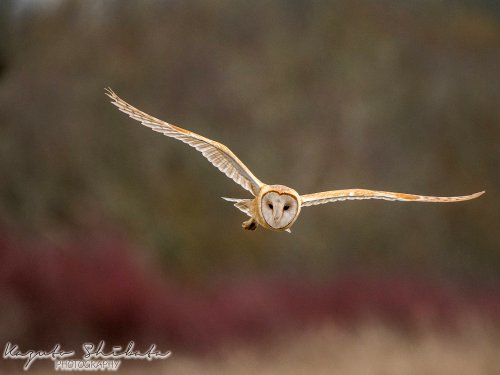 Barn Owl flying around in the East Meadow, 2018-02-12. Photo by Kazuto Shibata |
|
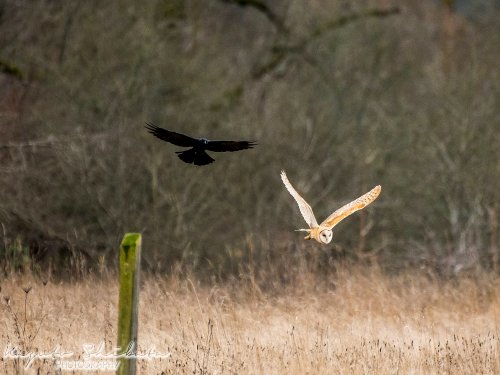 Barn Owl flying around in the East Meadow, 2018-02-12. Photo by Kazuto Shibata |
|
Report for February 16, 2017 Birding at Marymoor
| We had unexpectedly nice weather today, and over a dozen birders. The birds cooperated, making for an excellent day. It was warm, and partly sunny by our start time (though Matt got rained on pre-dawn).
After our recent rains, there was water everywhere. Large puddles in fields and parking lots, water over the paths, water over the boardwalk. It was passible with over-the-ankles boots, but just barely and only with care. Sadly, we also noticed that the “odd-snag”, a tremendously old Douglas Fir snag that stood just SW of the park entrance, has broken off very short. For at least a couple of decades, RED-TAILED HAWKS nested atop the snag, which featured a “toothpick” spike about 6 feet tall that stuck up from above the broken-off top. The hawks would nest at the base of the spike which I expect it made the nest harder for eagles to predate (though we did once witness an eagle take a baby hawk). A few weeks ago, a Red-tail was seen building up the nest for another year; now they will have to find a new place to nest. Highlights: Northern Pintail One male in a field puddle – First for 2017 It was a big surprise to find a HORNED LARK on the grass fields just NE of Lot C (where we meet). This is just our 3rd spring sighting ever for Horned Larks at Marymoor (and only our 18th sighting in all). The two previous spring sightings were 2002-02-15 (only one day off from today’s date!) and 2002-04-17. It was a good day for animal sightings too. In addition to the usual Eastern Gray Squirrels and Eastern Cottontails, Matt *saw* a BEAVER pre-dawn, and we had at least 2 RIVER OTTERS on the lake. At the Rowing Club pond were at least 3 RED-EARED SLIDERS and 1-2 very bright PAINTED TURTLES. For the day, 60 species. For the year, I believe we’re at 82 species (plus swallow sp.) == Michael Hobbs |
|
|
|
|
|
|
|
|
|
|
|
|
|
|
|
|
Report for February 18, 2016 Birding at Marymoor
| We had a very nice morning today, with virtually no precipitation, and even with some hints at sunshine. Temps were in the 40’s-low 50’s. Birds were singing all over.
Highlights: Green Heron Juvenile on beaver lodge across from Dog Central I was ecstatic to see the GREEN HERON, for with this sighting for Week 7, we’ve now seen Green Heron at least once during each week of the year. 45 other species have been seen in all weeks. The GREAT BLUE HERONS are being very confusing. There was only one heron on the old heronry. There were over 30 herons in three trees about 100 yards north of the heronry. They have started about a dozen nests at the new site, all but one in a single tree. It’s unclear if this is an expansion or a relocation of the heronry. If it’s a relocation, I’m baffled as to why. As I mentioned, there was a lot of singing today. Some of the birds noted singing included AMERICAN ROBIN doing full, insistent songs, RUBY-CROWNED KINGLET, SPOTTED TOWHEE, DARK-EYED JUNCO doing variations on trill songs, HOUSE FINCH, and (quietly) WESTERN MEADOWLARK. Today’s animal list included AMERICAN BEAVER (Matt saw/heard one early), and our First of the Year MUSKRAT. The Bullfrog tadpole mentioned two weeks ago turned out to be a NORTHWESTERN SALAMANDER when I examined Ollie’s photos. We had not previously documented that species at the park. It was being eaten by the juvenile Green Heron. Tuesday, I had HUTTON’S VIREO and VARIED THRUSH at the Rowing Club, both new for the year. For today, 57 species. For the year, adding WESTERN SCREECH-OWL, HUTTON’S VIREO, and VARIED THRUSH, I believe we’re at 76 species. == Michael Hobbs |
|
|
|
|
|
|
|
|
|
|
Report for February 12, 2015 Birding at Marymoor
| The weather is so nice it’s scary. There was a hint of pre-dawn fog, but that cleared by sunrise. We were left with a warm, partly sunny, windless, rainless day. Water level was highest so far this winter, just barely puddling 1 section of the boardwalk. The birds were out and about, singing and loafing. Lots to see.
Highlights: Greater White-fronted Goose Two with Cackling Goose flock near entrance Along with the same list of birds singing last week, add VIRGINIA RAIL, NORTHERN FLICKER, and SPOTTED TOWHEE. An ANNA’ S HUMMINGBIRD was doing display flights at the south end of the Dog Area. For the day, 61 species! And we’re up to 79 species for 2015. == Michael Hobbs |
|
|
|
|
|
|
|
|
|
|
|
|
|
|
|
|
|
|
|
Report for February 13, 2014 Birding at Marymoor
| Matt and I got to substitute for Michael who is on the road.
The day was pretty good at Marymoor with no rain, but strong winds early. Nice gull flock early, and we pulled out at least one Herring Gull. This is a week when we often see Herring. Notable birds: Brian H. Bell |
|
|
|
|
|
|
|
|
|
|
|
|
|
|
|
Red-eared Slider. Photo by Ollie Oliver |
Report for February 14, 2013 Birding at Marymoor
| The drizzle to start the day was a bit annoying, but it cleared up about a third of the way through our walk, leaving us with really a nice day. It’s February, and the birding isn’t always that exciting in February. But with the nice mild weather we’ve been having, things weren’t too bad.
Highlights: Green-winged Teal 26 at Rowing Club pond While we were at the Rowing Club, 20 GREAT BLUE HERONS took flight from the heronry (they’ve been hanging out at the nests, perhaps laying claim and pairing up – we haven’t seen much repair or nest building going on yet). Moments later, a juvenile BALD EAGLE flew by. The herons circled around for a while before returning to their posts. Matt may have heard the screech of GREAT HORNED OWL babies, as well as the hoots of an adult. This is up the ravine, just west of the park entrance off West Lake Samm. Parkway. There was a RIVER OTTER in the slough upstream of the Rowing Club dock, and a turtle (Red-eared Slider) hauled out at the Rowing Club pond. Matt also heard BEAVER pre-dawn in the slough. For the day, a very respectable 58 species. == Michael Hobbs |
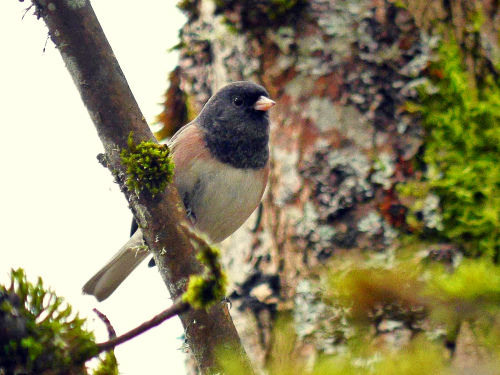 Dark-eyed Junco. Photo by Ollie Oliver 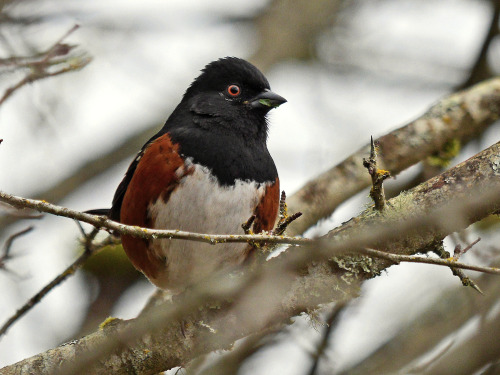 Male Spotted Towhee. Photo by Ollie Oliver |
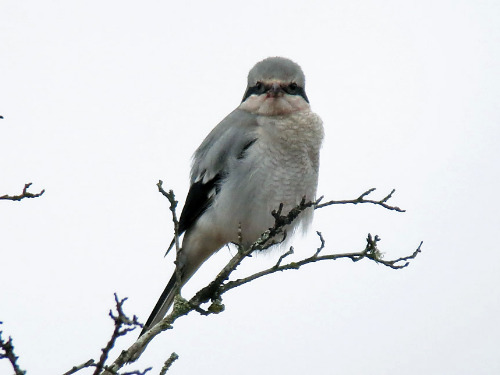 Northern Shrike, Thursday afternoon. Photo by Mike Hamilton |
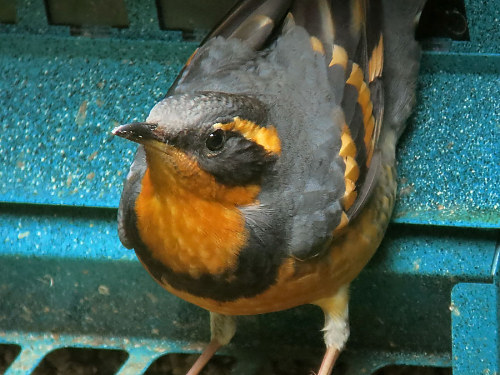 Male Varied Thrush on the park office, Thursday afternoon. Photo by Mike Hamilton |
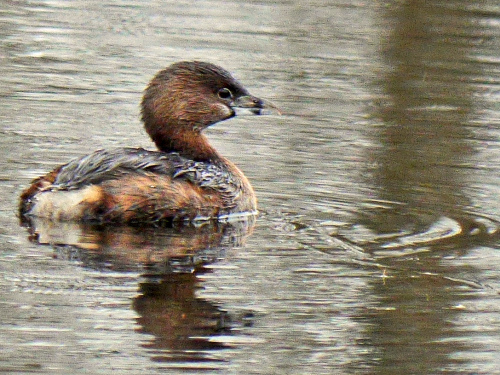 Pied-billed Grebe, Thursday afternoon. Photo by Mike Hamilton |
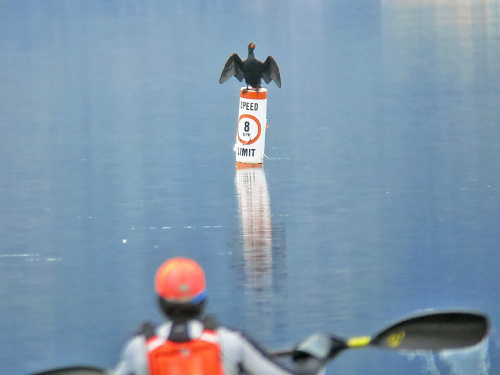 Double-crested Cormorant, Thursday afternoon. Photo by Mike Hamilton |
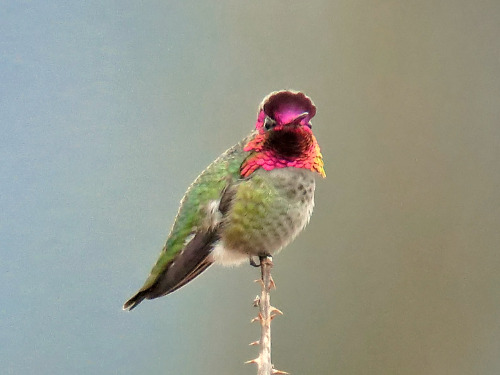 Male Anna's Hummingbird, Thursday afternoon. Photo by Mike Hamilton |
|
Report for February 16, 2012 Birding at Marymoor
|
I checked the weather last night, and their predictions for the day sounded horrible. So much for weather prediction. We did have rain, but much more than half the time there was no rain, and for a short while we had blue skies. We also had birds! For the day, a great February total of 57 species. For the year, adding MERLIN, 76 species. |
|
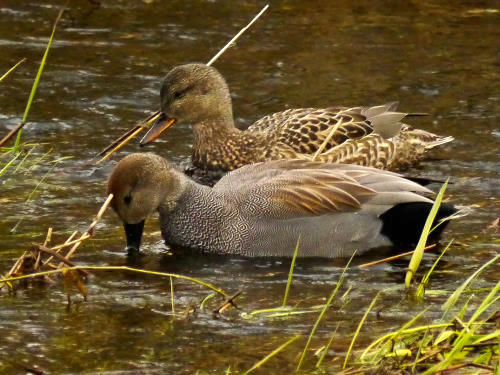 Pair of Gadwall. Photo by Ollie Oliver |
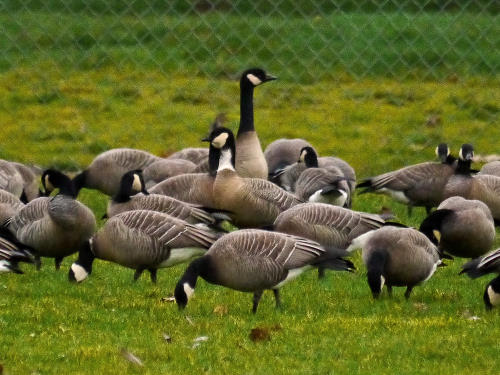 Cackling Geese, including one with an odd white throat. Photo by Ollie Oliver |
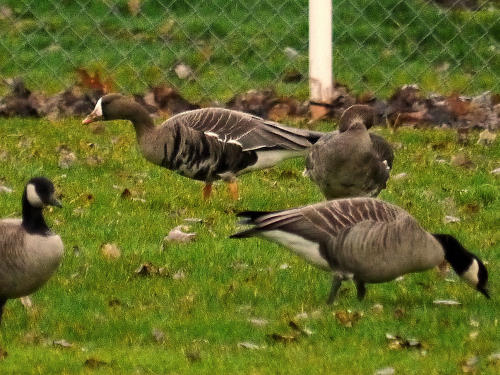 Adult Greater White-fronted Goose with Cacklers. Photo by Ollie Oliver |
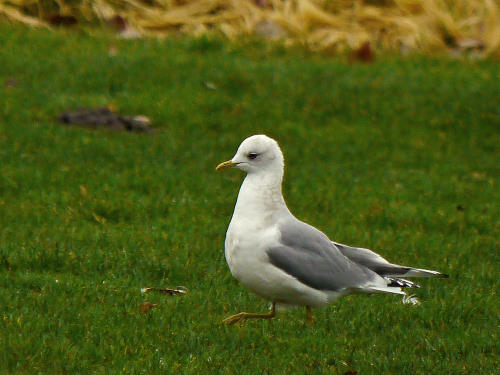 Mew Gull. Photo by Ollie Oliver |
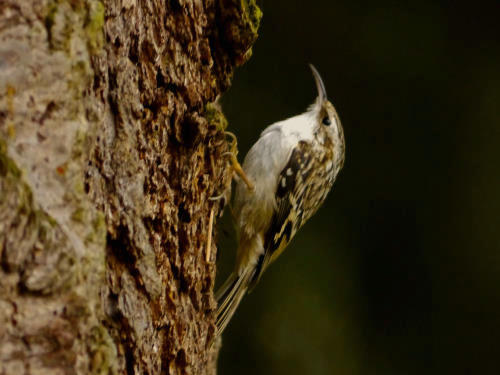 Brown Creeper. Photo by Ollie Oliver |
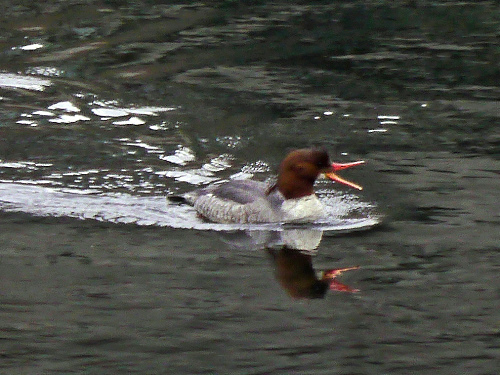 Female Common Merganser, 2012-02-15. Photo by Ollie Oliver |
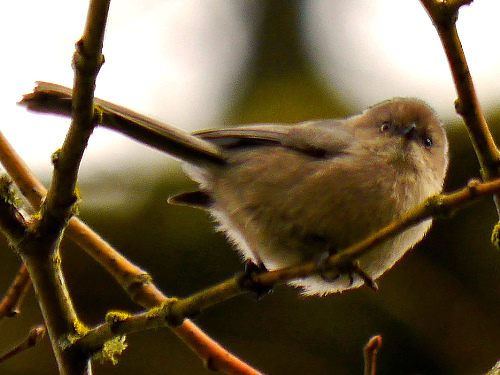 Bushtit, 2012-02-15. Photo by Ollie Oliver |
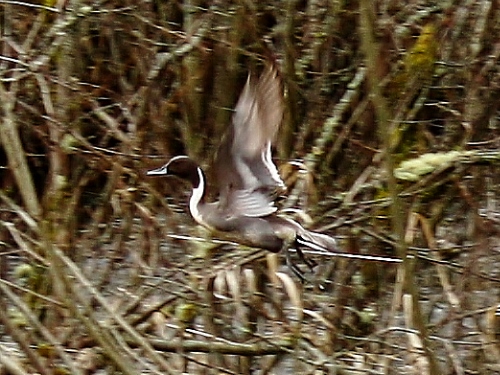 Male Northern Pintail, 2012-02-12. Photo by Lillian Reis |
Report for February 17, 2011 Birding at Marymoor
|
The sleet stopped just before our 7:30 start time, and we really had quite a nice morning. No real precipitation, and the wind didn't kick up until we were past the East Meadow. Compared with last week, it was quite birdy. |
Thursday was not very photogenic, but Ollie Oliver took these shots the day before, on Wednesday, 2011-02-16 |
|
|
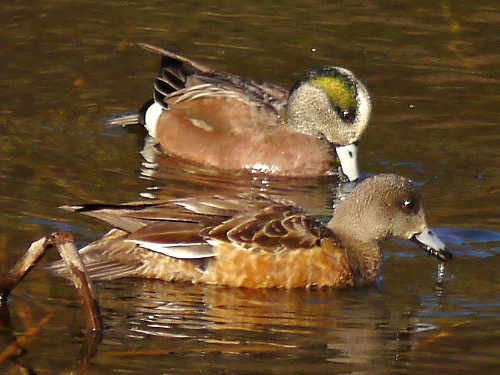 American Wigeon pair |
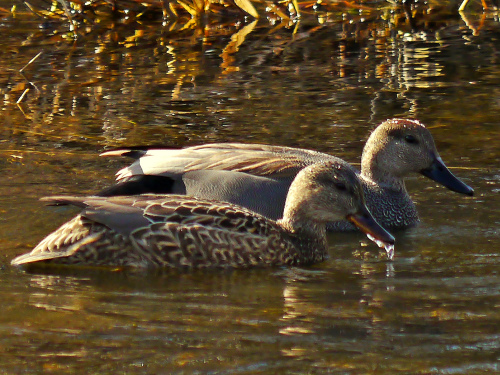 Gadwall pairl |
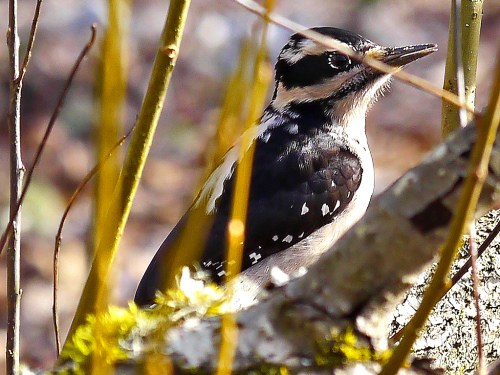 Hairy Woodpecker female |
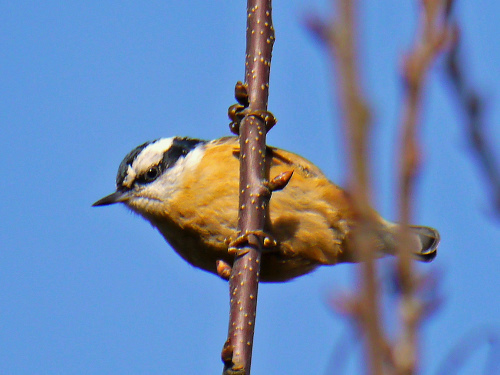 Red-breasted Nuthatch |
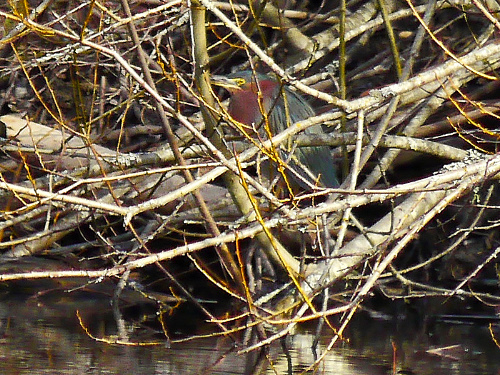 Green Heron at the Rowing Club |
Report for February 18, 2010
|
A bit of early fog, and a bit colder than recently at the start, but another gorgeous day all-in-all.. Highlights: Cackling Goose Still some with Canadas on grass parking lot Notable were all of the species heard singing:: For the day, 59 species. For the year, Pileated was new. = Michael
|
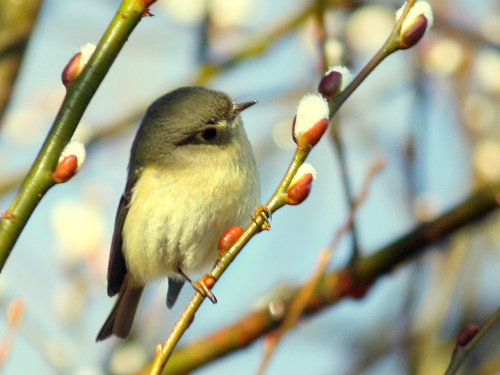 Ruby-crowned Kinglet. Photo by Lillian Reis 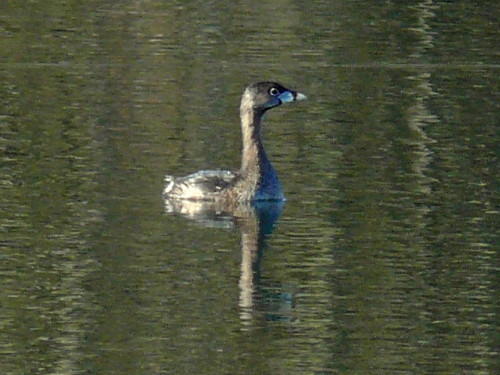 Pied-billed Grebe |
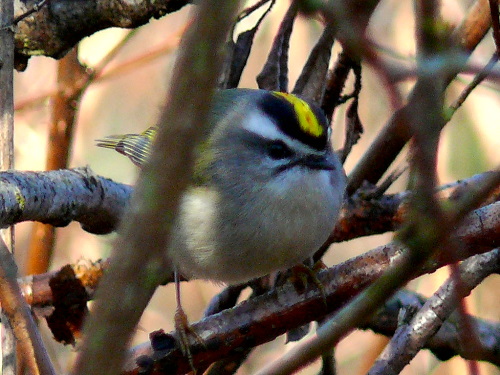 Golden-crowned Kinglet |
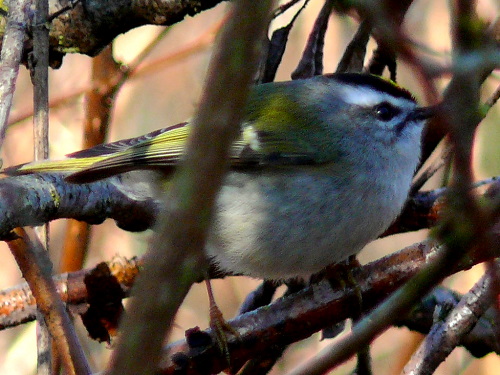 Golden-crowned Kinglet |
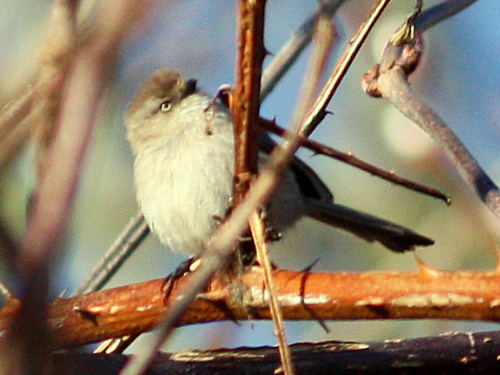 Female Bushtit. Photo by Scott Ramos |
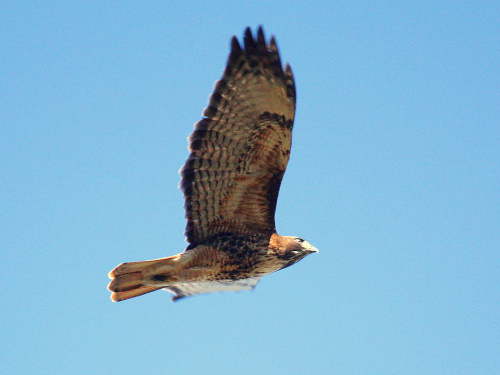 Red-tailed Hawk, 2010-02-19. Photo by Lillian Reis |
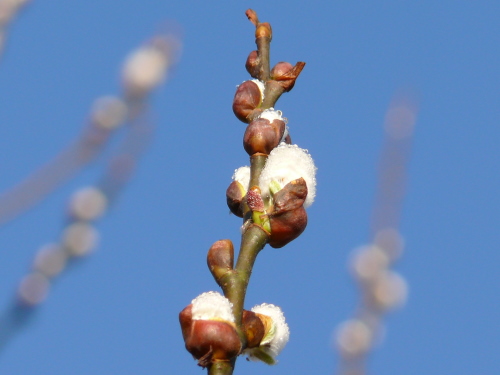 |
Willow |
Report for February 12, 2009
|
It was quite a nice day today - thin high overcast, but some sun. Frosty to start, but it warmed well enough. Birdy enough, especially the beginning and the end. The downer was that Scott's car got broken into between 6:30 and 7:00. Having to call the sheriff is no way to start a morning. The AMERICAN TREE SPARROW was again seen around the Compost Piles. We missed it, but Jeff went back and found it, so after the Rowing Club, I went over and we found it again. This is the 5th week for this individual. Highlights: Cackling Goose Big flock flew over around 8:00 Lots of singing birds, including Black-capped Chickadee, Brown Creeper, Bewick's Wren, Spotted Towhee, Fox Sparrow, Song Sparrow, Dark-eyed Junco, House Finch, and Purple Finch. Mallards were copulating. A Red-tailed Hawk was atop the odd snag nest for a while. After the Tree Sparrow, I went over to the 187th Ave. access off East Lake Samm Parkway and walked a bit of the East Lake Samm Trail back towards Marymoor. New birds for the day were: Lesser (?) Scaup 20 at the north end of the lake So for the day, 59 species. For the year, still at 79 species. == Michael |
|
|
|
|
|
|
|
|
|
|
|
|
Mount Rainier from the NE corner of the lake |
Report for February 14, 2008
|
We had a great day at Marymoor today. The weather was delightful, starting out just above the freeze and warming, no wind, quite a bit of sun. Really very pleasant. It was pretty birdy too. Water levels were back up - you need tall boots again to get to the boardwalk. Humor levels were somewhat below usual, as Matt Bartels is working a temp job and missed Marymoor today. Highlights: Wigeon Had a flyby that *might* have been Eurasian There was lots of singing - American Robin, Dark-eyed Junco, Marsh Wren, Bewick's Wren, Black-capped Chickadee, and the Meadowlark, plus maybe some others. We had birds making weird sounds - a robin making repetative noises a la a mockingbird, and a Song Sparrow making strange noises I'd never heard before. We had a lot of tussles between male robins, and an apparent display between a male and a female junco. Maybe it was all Valentine's Day stuff... Anyway, for the day we had 56 species, which is really good for Marymoor in February. Hairy Woodpecker was new for the year. Oh, and Ollie and Scott reported seeing a BEAVER in the slough. It was a good day. == Michael |
|
|
|
|
|
|
|
|
|
|
|
|
|
|
|
|
Report for February 14, 2007
| It was a lousy day - clouds, blowing mist most of the morning, gusts maybe up to 10-15 m.p.h. Couldn't find more that about 5 Song Sparrows, only 3 glimpses of Spotted Towhee, and no House Sparrows or Rock Pigeons. The median number of individual birds per species was 4. That all said, it was a great day! Really. Highlights: Barrow's Goldeneye Female at the lake platform Bald Eagle Female eating coot near nest; adult hunting coots at lake HERRING GULL First confirmed sighting at Marymoor GLAUCOUS GULL First winter - first ever at Marymoor Anna's Hummingbird Male definitely on territory south of windmill Belted Kingfisher First of 2007, on slough Northern Shrike On a bush north of grass soccer fields Brown Creeper 3-4 on a single Doug Fir near the mansion This was only our 7th sighting of a BARROW'S GOLDENEYE, but this was the 2nd week in a row for the species. Last week was a fly-by male, this week was a female, probably first-winter. The pair of BALD EAGLES was near the new nest, and the female (based on size) was eating a coot draped over the branch of a cottonwood quite close to the trail. The little feet dangling down made ID of the prey easy. Later, when we got to the lake, we watched an adult Bald Eagle hovering and making swipes at a tight ball of AMERICAN COOTS. The coots mostly just flapped their wings, but otherwise remained motionless. They didn't dive and they mostly didn't try to flee. Apparently the mass of wing flapping is an effective defense. When we first arrived in the morning, there were a few gulls on the grass fields near where we park. We were searching through them for RING-BILLED GULL (there were a few among the MEW GULLS and GLAUCOUS-WINGED GULLS). There was also a larger black wing-tipped gull at the far end of the field that I first thought was probably our usual, singular, WESTERN GULL (he showed up later). But the head was dusky, and yet it didn't look right for a GWGUxWEGU hybrid. The more I looked, the more I got suspicious. Guys, this wouldn't be a Herring, would it?" We got out a scope, but even so, it was too far to tell. However, after having walked halfway across the field, we were able to get decent, confirming looks. Previously, we'd had only one very uncertain maybe in mid-October, 2004. So it was very nice to add this species to the park list! After our whole loop, plus the swing around the mansion, as we were returning to the cars, I saw the Western Gull on the road. Behind our cars were more gulls, some obviously larger than Ring-billed or Mew. I suggested that we should scan the gulls before leaving to see if the Herring was there again. Scan we did, but no Herring. But my eye was drawn to a large immature gull. "Um, guys? Could this be a Glaucous?" Matt looked and told me, in no uncertain terms, to go fetch my scope. Through the scope there was no question, and a couple of looks in short flights also added to our certainty that it was, indeed, a first-winter GLAUCOUS GULL - not a gull any of us had expected at Marymoor. Ollie spotted the NORTHERN SHRIKE north of grass fields 7-8-9 after the rest of us had passed by that area. I'd been pretty sure we *wouldn't* see a shrike today, because of the wind. I guess I shouldn't assume. We also got to see a very cool, very fast, very low, direct flight of an adult COOPER'S HAWK, which winged maybe 150-200 yards along a ditch and into Snag Row. We'd seen quite a few AMERICAN ROBIN, EUROPEAN STARLING, and DARK-EYED JUNCO in the snag area where the Cooper's was aimed, but it came up empty and landed in the Pea Patch. For the morning, 55 species, with three added to the year list (HERG, GLGU, and BEKI) for a total of 81. == Michael |
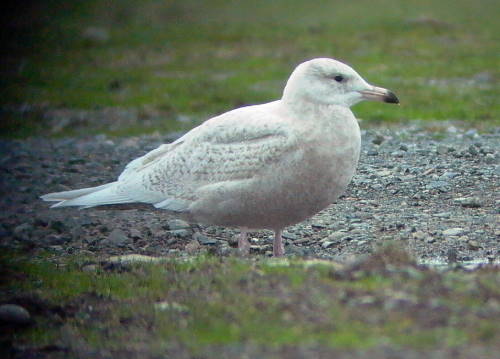
Glaucous Gull and Bushtit photos by Ollie Oliver |
Prev |
Bird Sightings Week 7
|
Next |
